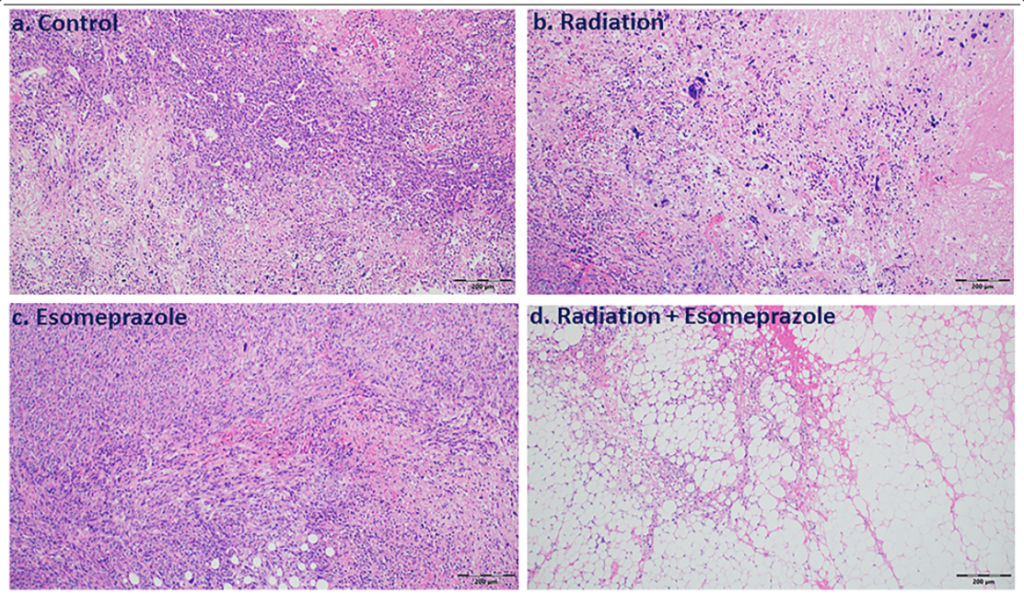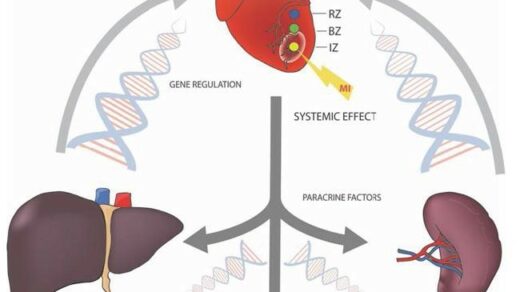In the cover paper of Oncotarget’s Volume 12, Issue 14, researchers repurposed an over-the-counter acid reflux medication to treat cancer.

Radiation therapy is used to treat cancer patients who have medically or surgically inoperable tumors. Many solid tumors are only partially responsive to radiation and require the use of radiosensitizers. The radiosensitizer drugs currently available on the market can have negative side-effects and are not sufficiently selective. Researchers aimed to discover new, safe, and effective radiosensitizers by screening previously approved drugs, unrelated to the treatment of cancer.
“Accordingly, there is an opportunity to search and develop safer and effective radiosensitizers. One strategy is to screen among existing drugs including those that are originally approved for non-oncologic indications.”
Researchers from Baylor College of Medicine, University of Texas MD Anderson Cancer Center, and Texas Children’s Hospital analyzed the possible radiosensitizing effects of esomeprazole—an over-the-counter medication originally used to treat frequent heartburn and gastroesophageal reflux disease. Their study was chosen as the cover paper of Oncotarget’s Volume 12, Issue 14, and entitled: “Esomeprazole enhances the effect of ionizing radiation to improve tumor control.”
The Study
“Emerging studies indicate that proton pump inhibitors (PPIs), a class of FDA-approved drug for the treatment of gastroesophageal reflux diseases, have chemosensitizing activity in tumor cells derived from melanoma, colon, breast and ovarian cancers [1–3].”
To assess this drug’s ability to help command tumor control, the researchers carried out molecular, cell biological, and in vivo experiments using two human head and neck squamous cell carcinoma (HNSCC) cell lines, mouse oropharyngeal epithelial cells (MEER), breast cancer cells, and lung cancer cells. These experiments were used to evaluate esomeprazole’s effects on cancer cell proliferation, cell cycle, colony formation, DNA damage response, and overall anticancer ability.
The researchers found that esomeprazole possesses anticancer activity in their in vitro experiments. After additional in vivo studies, they demonstrated evidence that this drug enhances the effect of radiation to improve tumor control, inhibits cancer cell proliferation, and increases chemotherapy-induced DNA damage. The researchers also observed that esomeprazole differentially regulates a number of cancer-related proteins.
“Intriguingly, combination of esomeprazole with ionizing radiation significantly enhances tumor control in vitro and in vivo.”
Conclusion
“In conclusion, esomeprazole, a common FDA-approved drug for the treatment of acid reflux, has anticancer activity that dose-dependently limits the growth of primary human cancer cells derived from various tissue sources.”
Click here to read the full research study, published by Oncotarget.
YOU MAY ALSO LIKE: More Oncotarget Videos on LabTube
—
Oncotarget is a unique platform designed to house scientific studies in a journal format that is available for anyone to read—without a paywall making access more difficult. This means information that has the potential to benefit our societies from the inside out can be shared with friends, neighbors, colleagues, and other researchers, far and wide.
For media inquiries, please contact media@impactjournals.com.



